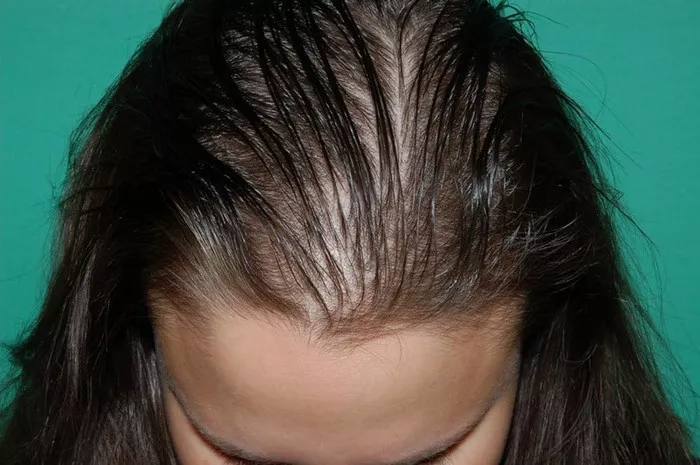Hair loss is a concern that plagues many individuals, leading them to explore various supplements and remedies to combat this issue. Biotin, often referred to as the “hair growth vitamin,” has gained popularity for its potential role in promoting healthier hair. In this article, we will explore the connection between biotin and hair loss and provide essential information on how much biotin you should take to potentially address hair loss effectively. Let’s delve into the details of this essential vitamin and its impact on your hair health.
Understanding the Biotin-Hair Loss Connection
Biotin, also known as vitamin B7 or vitamin H, is a water-soluble vitamin that plays a crucial role in various bodily functions, including the maintenance of healthy hair, skin, and nails. It is essential for the synthesis of keratin, a protein that makes up the structural foundation of our hair.
How Biotin May Help Hair Loss?
Research suggests that biotin may contribute to hair growth and hair health. Biotin supplements are believed to strengthen hair strands, reduce hair breakage, and promote overall hair thickness. While biotin is not a guaranteed cure for hair loss, it can be a valuable addition to your hair care routine.
Determining the Right Biotin Dosage
The recommended daily allowance (RDA) for biotin varies depending on age and gender. For adults, the RDA typically ranges from 30 to 35 micrograms (mcg) per day. However, when addressing specific concerns like hair loss, many experts recommend higher biotin doses.
Higher Doses for Hair Health
To potentially support hair health and mitigate hair loss, some individuals opt for biotin supplements in higher doses. Common dosages for hair loss prevention can range from 2,500 mcg to 5,000 mcg per day. However, it’s crucial to consult with a healthcare professional before significantly increasing your biotin intake.
Factors Influencing Biotin Requirements
The following are factors that affect biotin requirements:
1. Individual Variations
It’s important to note that biotin requirements can vary from person to person. Factors such as age, genetics, diet, and underlying health conditions can impact how much biotin an individual needs for hair health. Therefore, personalized guidance from a healthcare provider is invaluable.
2. Addressing Deficiencies
In some cases, hair loss may be attributed to a biotin deficiency. If you are deficient in biotin, your healthcare provider may recommend higher doses to correct the deficiency and potentially improve hair health.
The Role of Diet in Biotin Intake
Here’s the role of diet in biotin intake:
1. Natural Sources of Biotin
While biotin supplements are readily available, you can also increase your biotin intake through dietary choices. Foods rich in biotin include eggs, nuts, seeds, salmon, and leafy greens. Incorporating these foods into your diet can contribute to your overall biotin intake.
2. Combining Supplements and Diet
Many individuals choose to combine biotin supplements with a biotin-rich diet to ensure they meet their hair health goals. This holistic approach can provide a comprehensive source of this essential vitamin.
Potential Side Effects and Precautions
The following are potential side effects and precautions:
1. Side Effects of Biotin Supplements
Biotin is generally considered safe when taken at recommended doses. However, some individuals may experience side effects such as skin rashes, digestive issues, or interactions with medications. It’s essential to consult with a healthcare provider before starting any new supplement regimen.
2. Interactions with Medications
Biotin supplements can interfere with certain laboratory tests, leading to inaccurate results. Inform your healthcare provider about your biotin intake if you undergo medical tests to ensure accurate diagnostics.
Monitoring Progress and Patience
It’s important to manage expectations when using biotin for hair loss. Hair growth is a gradual process, and results may not be immediate. It can take several months of consistent biotin supplementation to notice significant improvements in hair health.
To track your progress, consider documenting your hair’s condition through photographs and regular check-ins with a healthcare provider. They can help assess the effectiveness of your biotin regimen and make any necessary adjustments.
Biotin – A Potential Ally in Your Battle Against Hair Loss
In conclusion, biotin may offer potential benefits for individuals dealing with hair loss. While the recommended daily allowance for biotin is relatively low, higher doses may be considered to address specific concerns like hair health. However, individual variations and potential side effects underscore the importance of consulting with a healthcare professional before beginning a biotin regimen. By taking a personalized approach and combining biotin supplements with a biotin-rich diet, you can optimize your chances of promoting healthier, more resilient hair. Remember, achieving your hair health goals requires patience and consistent effort, so monitor your progress and stay committed to your journey toward revitalized hair.


